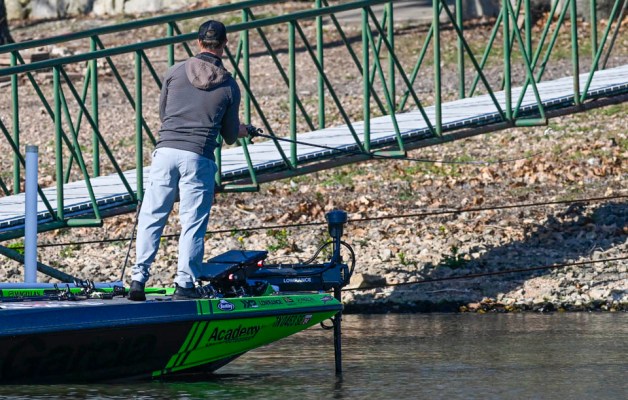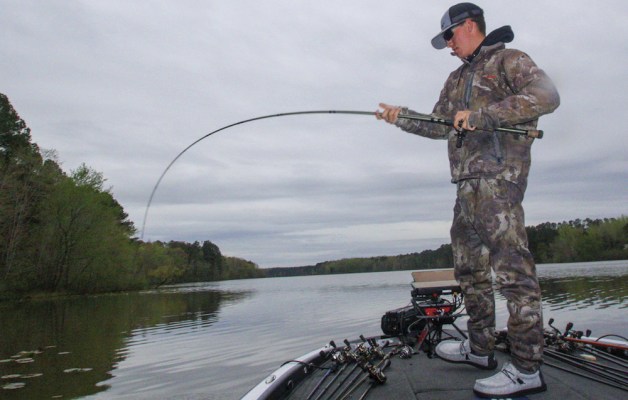Fishing is a game of knowledge, and we gather knowledge from a variety of places. From weekend anglers to the top tour angler, we seek more information to help us catch fish. We work with other anglers without our network, we scour the internet, magazines, television shows and tournament results for information that will help us catch more fish. With that said, nothing beats the knowledge we learn first-hand on the water. The problem is storing that information and recalling it when the time is right.
It's interesting how I can remember catching a particular fish on a bait on an exact spot 10 years ago. At the same time, I might forget the adjustments I made and the conditions that led to catching that fish. That's why I try my best to keep a log book of my fishing trips. I have a log book for every lake I fish.
I keep simple notes about each trip to a lake that I can go over before a tournament and see if anything matches up.
Some of things I keep in the book are date, water temperature, wind direction, how the fish were positioned (depth and relation to the main lake), and productive and unproductive styles. For this past week I would enter something along these lines:
April 17-21: Bull Shoals
Pre-Frontal conditions, fish are shallow, 20 ft. vis., solid reaction bite during wind, water temperature mid 60's, secondary points to backs of creeks
Post-Frontal, wind, fish are shallow, 20 ft vis., good reaction bite on Warts and swimbaits, water temperature low 60's, secondary points and points near creeks
Post-Frontal, no wind, water mid 50's, no reaction bite, 20 ft vis., light line, tubes, shaky heads and Carolina rigs, busting fish in coves for topwater.
I'll also print the results of the tournament from the internet and any articles about the tournament and include those in my book as well.
This might not seem like much information — and for the most part it fits the pattern of any lake — but you never know what simple piece of information can be the difference.
It's not only important to keep a log with simple notes, but it's also important to review them prior to a tournament regardless of how great the bite is. The whole point is to refresh my mind with the archives of what I have done in the past, which can help me make on the water adjustments effectively.
This week, had I reviewed my notes, I would have known that in post frontal conditions a smoke-colored grub would have been a great option. I have fished that exact bait all over these lakes and the thought never occurred to me until I was on my way home. It's one of those things that makes me want to kick myself, but as I mentioned a few weeks ago, I'm still learning!
Keeping a log book is most necessary when you travel to a lot of lakes, but it can still be helpful even if you only fish one or two bodies of water. In fishing, the more information you have about a fishery the better off you'll be. Nothing beats information you've learned on your own, and a log book will help you retain more of that information for future use.
Try it! You never know what small detail can be the difference between a great day on the water and kicking yourself on the drive home.





